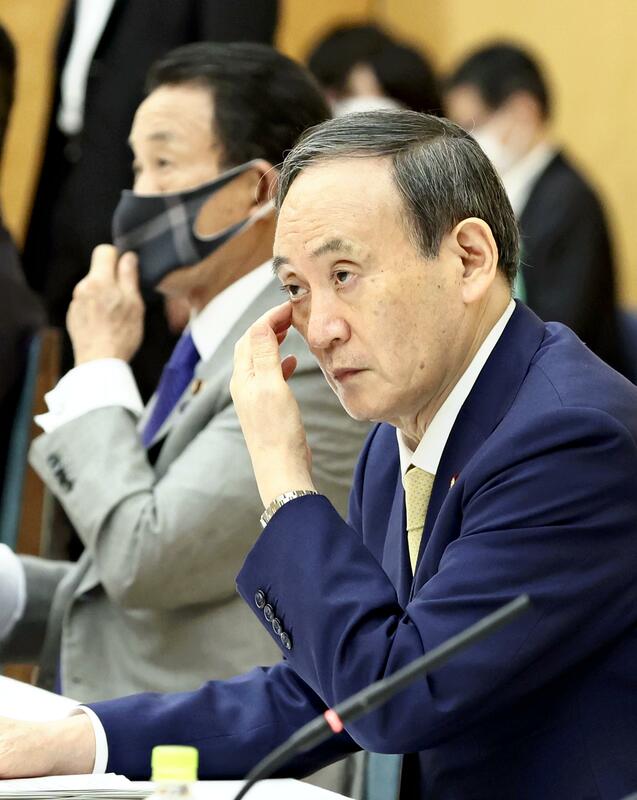
Deliberations within the government and ruling parties on the nation's financial reform are at a standstill. The government's attempts to curtail the growth of social security costs are proving difficult, and the move toward decarbonization is raising the pressure for additional spending. All the while, the coronavirus continues to spread. With the lower house elections and other items on the political calendar in the offing, it is unlikely that the government will have any full-fledged discussions on tax increases and similar measures to shore up revenue.
Following a Cabinet meeting on Friday, Finance Minister Taro Aso said at a press conference that "given the anxiety about the future of the nation's social security system (among the working-age population), it's only a matter of course that the government should steadily push ahead with reforms of revenues and expenditures," sounding the alarm over poor fiscal discipline.
The government targets bringing the primary balance into the black by fiscal 2025. But with expenditures ballooning over large-scale economic measures taken in response to the coronavirus pandemic, that goal is all but unachievable, let alone containing the size of the deficit in fiscal 2021.
Restraining social security expenses is what the Finance Ministry considers to be the centerpiece in "holding fast to the fiscal reform line," as a senior ministry official put it.
Social security spending has swollen to about 35 trillion yen as the population increasingly ages, a figure that is about one-third of the initial budget of the general account. As other policy-related budgets have been plateauing in recent years, there is little room to hold down spending increases aside from social security expenses.
The ministry wants to curb the increase in health care expenses, which are mainly earmarked for people aged 75 and older. However, amid the pandemic, this group has grown increasingly concerned about their health and is likely to oppose any such moves.
Calls are spreading within the ruling camp to proceed cautiously on any full-fledged discussions on the matter as all eyes are on the lower house election, which is to be held by autumn.
In addition, decarbonization efforts -- a centerpiece policy in Prime Minister Yoshihide Suga's administration -- will ramp up pressure for additional spending. The ruling camp is calling for financial assistance, especially for companies developing technologies that reuse CO2 as fuel.
The United States has spelled out a large-scale infrastructure investment plan aimed at promoting carbon neutrality. In Japan, discontent has been growing among automakers and steelmakers that will be affected by the decarbonization drive. Recognizing this situation, a senior Finance Ministry official said, "We are aware that additional financial assistance will be needed."
On the other hand, in terms of revenue, there have been no discussions on securing more financial resources, such as implementing tax increases, even as the central government goes further into debt. The amount of new government bonds issued in fiscal 2020 reached 112 trillion yen, more than double the previous record amount issued in fiscal 2009 during the global financial crisis. The fiscal 2021 budget relies heavily on the issuance of national bonds, which account for 40% of the budget's financial resources.
There have been moves in Europe and North America to raise taxes on companies and the wealthy. Noting this, the Liberal Democratic Party's headquarters for promoting fiscal reform has incorporated in its proposal that the matter "should be considered by taking into account similar efforts being made by various foreign countries." However, the headquarters has not released any concrete plans.
One idea is a carbon tax that is levied based on the volume of greenhouse gas emissions. However, cautious views on this notion run strong, mainly among small and midsized companies whose business environments are harsh.
"Unless the government makes clear, in the Basic Policy on Economic and Fiscal Management and Reform [that is set to unveil in June], that it will secure financial resources corresponding to expenditures, it will end up repeating the issuance of a huge amount of deficit-covering bonds," a government official said uneasily.
Read more from The Japan News at https://japannews.yomiuri.co.jp/







